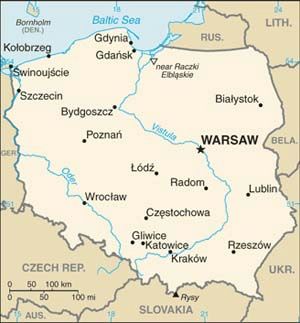On Thursday, a Senate committee voted to add Poland to the Visa Waiver Program (VWP) at the request of Sen. Mark Kirk (R-Ill.) and Sen. Barbara Mikulski (D-Md.), despite the fact that Poland has too high a visa refusal rate to participate. Expanding this risky program to unqualified countries at a time when immigration laws are not enforced, particularly against visa overstayers, would only invite even more illegal immigration.
The measure was approved by the Senate Appropriations Committee as an amendment to the Senate's version of the DHS appropriations bill (the House version has not yet been finalized).

Under VWP, short-term visitors from countries whose citizens are unlikely to remain as illegal aliens are permitted to enter the United States without visas. Thirty-eight countries are currently eligible.
Kirk maintained that allowing Polish citizens to enter the United States in unlimited numbers is "the best way to show Vladimir Putin that the United States is getting closer and closer to Poland as he gets closer and closer to Ukraine."
First of all, the idea that extending visa waivers to Poles is going to somehow factor into Vladimir Putin's geo-political ambitions is just plain silly.
Proponents of VWP expansion also frequently claim that adding more countries to the VWP means that the United States can get access to more information about travelers from those countries, making us all safer. The information sharing is a benefit, but it is possible to obtain it in other ways, such as through Interpol; it is not dependent on giving visa waivers.
The main reason Poland is not able to participate in VWP is because of the continued high likelihood that Polish visitors will not comply with their visas and will overstay. VWP countries must have a visa refusal rate of less than 3 percent (i.e., the rate at which U.S. consular officers reject visa applications from citizens of that country}. Poland's refusal rate was 6.4 percent in 2014, 10.8 percent in 2013, 9.3 percent in 2012, 10.2 percent in 2011, and 13.5 percent in 2009.
The refusal rates in Poland are high for a good reason. Poland is one of the top-20 countries of origin of illegal aliens in the United States and has more illegal aliens here than any other European country. Only one VWP country generates more illegal aliens than Poland — South Korea, which also was awarded VWP privileges for the wrong reasons (as part of trade agreement negotiations).
It's not that Poland is a basket-case of a country; it has come a long way and there are many reasons for its citizens to return from foreign travel, with freedom and economic opportunities being the most compelling. But the combination of a large Polish diaspora here offering kinship and support to illegal settlers in this current environment of lax immigration enforcement just makes it way too easy and way too tempting for travelers from Poland to overstay.
Overstayers make up approximately 40 percent of the illegal population. At last count there were more than 250,000 new visa overstayers added to the illegal population each year, with more than 25 percent coming from visa waiver countries.
Yet overstay enforcement and visa compliance are not priorities for DHS. A 2013 GAO report found that fewer than 2 percent of ICE resources are dedicated to overstay enforcement. As a result, even though ICE receives tens of thousands of leads on suspected overstayers, agents make only a handful of arrests each year, typically only if an overstayer has been convicted of a serious crime.
When we have a functioning entry-exit system, when we have some degree of enforcement against visa violators, and when there is little possibility of employment as an illegal alien, then we can talk about expanding the visa waiver program to a few more countries that might qualify. At that point, we will have better information on which countries are most at risk for non-compliance, we can have more confidence that those who do overstay will be removed, and there will be less incentive for visitors to overstay in the first place.
In the meantime, visa waivers simply are not an appropriate foreign policy tool. Visa waiver privileges should only be extended to another country when it is in our interest — when the benefits of having more visitors from a country outweigh the likelihood of more illegal immigration and more high-risk travelers from that country.
